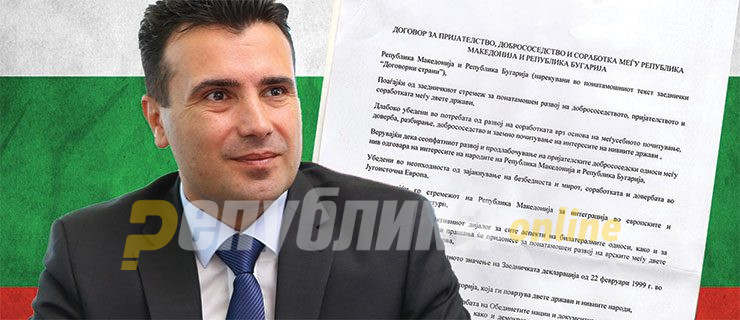Hristijan Mickoski revealed several scenarios in relations with Bulgaria that the government is proposing to start EU accession negotiations.
The first solution – the EU / EC to decide to start negotiations on June 22 without additional conditions, and with the diplomacy that follows in the next two weeks to put pressure on Bulgaria and its caretaker government to lift the veto, which will make way for the start of negotiations with the EU, says Mickoski.
He says he received the information from confidential diplomatic sources and that one scenario envisions Bulgaria allowing negotiations to start without additional conditions, but that is not likely to happen.
The second solution has two subpaths. The first is the acceptance of part of the Bulgarian declaration to be accepted as part of the negotiating framework, which will enter into the “fundamentals” part. That will mean negotiations for a start or so to speak. this implies complete assimilation and Bulgarianization or abandonment of the negotiations, Mickoski told reporters on Monday.
The second suboption is to accept all this orally under the pretext that Bulgaria has a caretaker government, and then the negotiations to continue with the new government.
The Zaev-Buckovski duo are negotiating with the Bulgarian caretaker government to accept the conditions that are part of the declaration of the Bulgarian Parliament to be included in the negotiating framework, in the first fragment of the negotiations (Fundamentals). The language, tradition, history, culture will be put on the negotiating table which will mean that until this is accepted there will be no beginning of negotiations – that is, this will be the beginning with no end. A date for the start of negotiations will be given on June 23-24, but with all the accepted requests of Bulgaria. With this, any future government that wants to start negotiations with the EU will have to accept these demands of Bulgaria – in other words – assimilation, Bulgarianization or freezing of negotiations, says Mickoski.
He also points out the danger that the Bulgarian declaration will be accepted orally, and then on the basis of those verbal guarantees Bulgaria will block Macedonia’s EU road.
The second possibility is to accept all this orally, and then get a date, and then when there will be a regular government in Bulgaria, it will block negotiations until official acceptance of the demands of the declaration of the Bulgarian Parliament, says Mickoski.
For all that is being negotiated, as he says, behind the scenes, there is no need for an official agreement to be passed by the Government, but only an oral agreement.
After this, Macedonia will no longer have a problem with Bulgaria, but it will have a problem with the European Union, which is a significantly more serious problem. Practically, Zaev mentioned all this in the BGNES interview. VMRO-DPMNE does not intend to accept this, nor does it want to accept the same as the Macedonian people, and not only Macedonians but also Albanians, Turks, Vlachs, Roma and all others living in Macedonia, says Mickoski.




Comments are closed for this post.